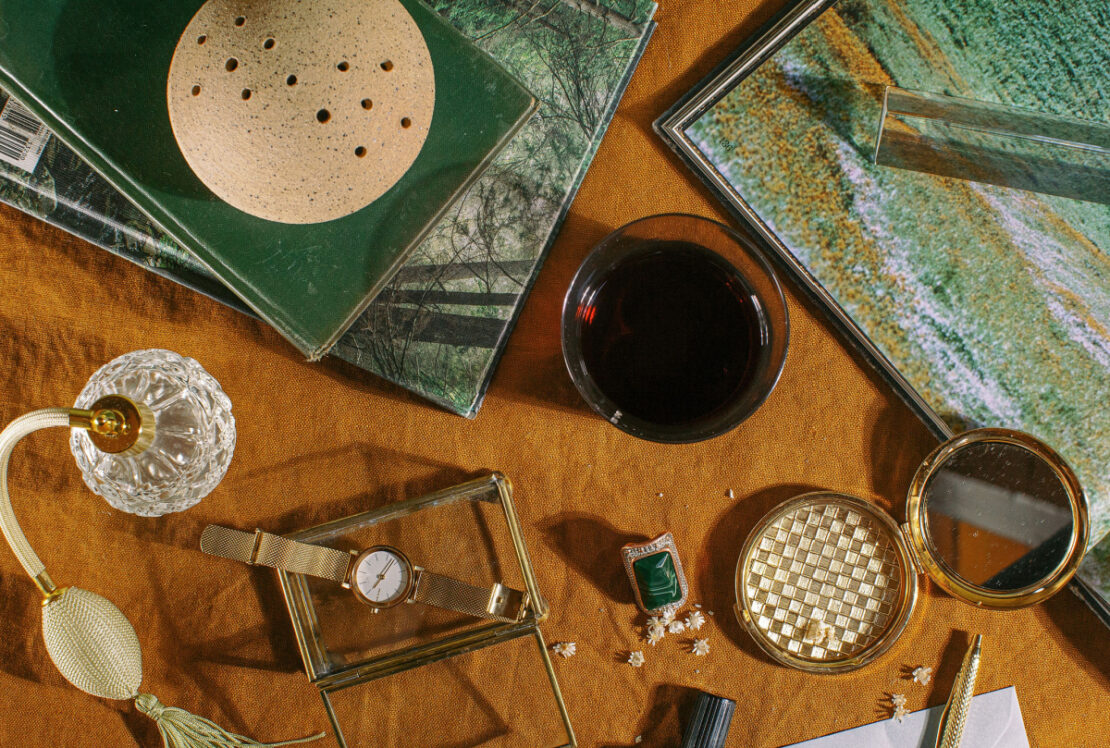
Herbal Academy Student Feature: Nana Meriwether (@drinkcale)
For the thirteenth installment of our Student Feature Series, we spoke with Nana Meriwether (@drinkcale). Nana has completed Herbal Academy’s The Craft of Herbal Fermentation, Intermediate Herbal Course, and Making Herbal Preparations 101. In 2019, she launched a company called Cale, which produces herbal wine alternatives that are lower in calories, sugar, sulfites, and alcohol content.
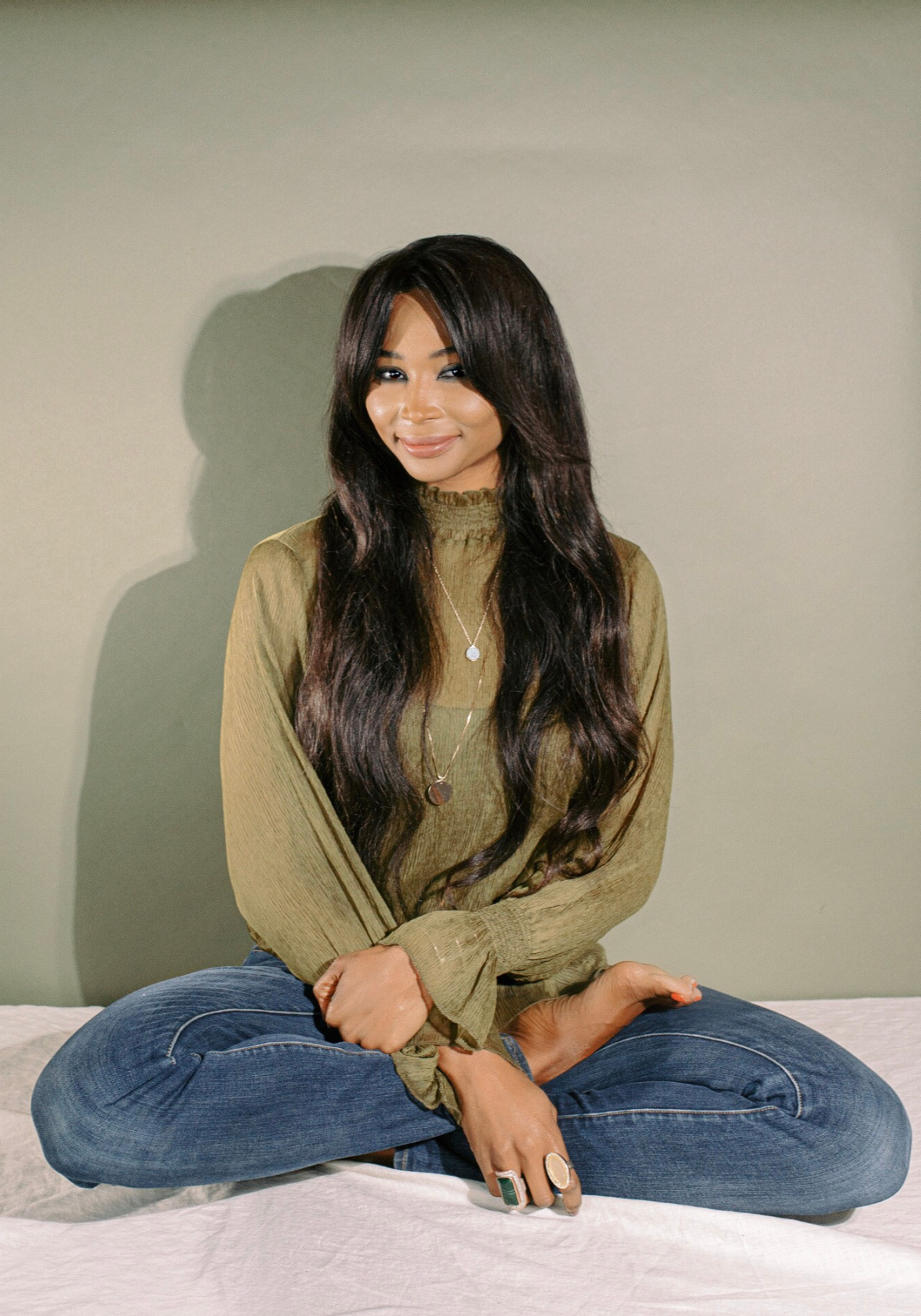
HA: Please tell us a little bit about yourself and how you started your path into herbalism.
Nana Meriwether: I had gone to the doctor because my horoscope told me to. I was in excellent health, everything was great…except for one marker which at the time signaled I was on the verge of a lifelong, chronic disease if I did not change my ways. Not only that, I had hit a ceiling at work. I was living in a run-down apartment in Brooklyn and yet another guy had ghosted me. I found myself in my early 30s neither happy nor healthy. It was from this place of rock bottom that Cale was born—my interest in the wellness field was sparked. I dove in and within a year, I had healed my health and entire blood chemistry. I moved, I found another job…I am still working on the boyfriend part….but I had found my feminine. My womanhood emerged.
The idea for Cale came to me while sitting in a tree on a permaculture farm in Costa Rica. I had spent 10 days in the jungle barefoot, mud in my nails, twigs in my hair, learning from the people and from the land. On this trip, I was introduced to herbalism.
I came home to New York City with a fire in me and began apprenticing herbalists. Yet, it wasn’t until I stumbled upon Herbal Academy that I found a succinct and centralized destination to fortify all of my learnings in the field. I believe it is important that herbal education combines a dedication to being outside with elders and those that have come before with structured classes where you can learn more in-depth. For example, you can learn about the science behind why and how certain herbs affect the body. Herbalism is both medicine and magic to me, science and spiritual, and so I embrace both folk method teachings and classes like Herbal Academy offers.
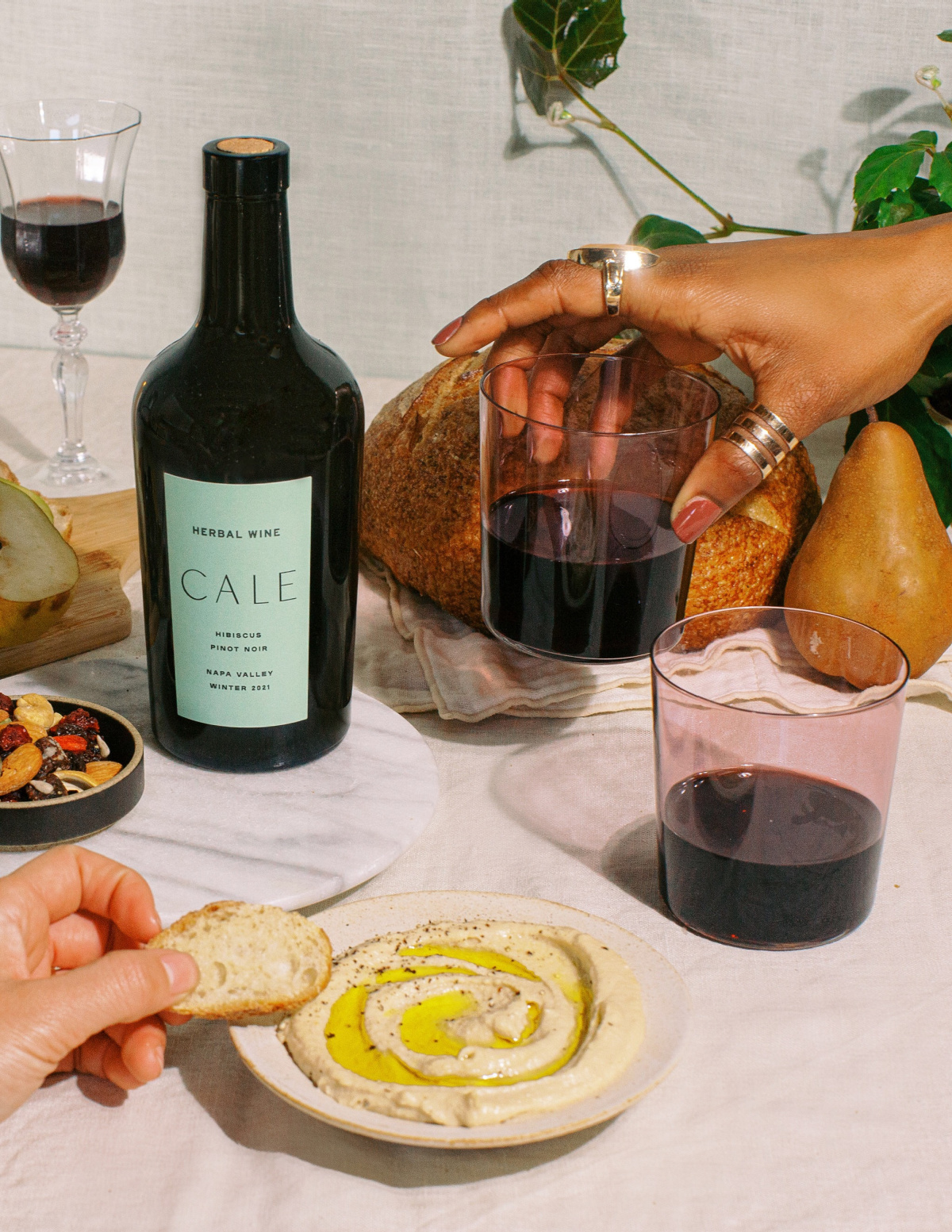
While studying I came across herbal wine—I like to think about it as a cousin to mead and kombucha. I was drinking less and looking for more healthful ways to imbibe and discovered this ancient practice that celebrates the expression and fermentation of herbs and botanicals. In 2019, I decided to bring herbal wines to market via founding my brand, Cale.
Plants and herbs are my passion. My days spent business-building, especially within the alcohol industry, can be challenging. But when I face tough days I am sure to have a night with my herbs.
I am realigned to my purpose, which is to bring herbalism and the knowledge that this field exists, that it is healing and holistic, and that plants were our earliest medicines, to the mainstream.
For all of 2019 and into 2020, I product developed. I self-funded my venture. In fact, I have not had an apartment since October 2019 in order to afford to build my brand. I launched my first wine, a Hibiscus Wine, in February of 2021. We have put a spin on the folk method; we lowered the alcohol in our wines, and produce out of Napa. We have looked to fortify our wines with traditional wine grape varietals like Pinot Noir as well—and so we have united two great bodies of knowledge: winemaking and herbalism. Our first release is Hibiscus Wine and we plan to release Marigold Flower Wine in the Fall of 2021.
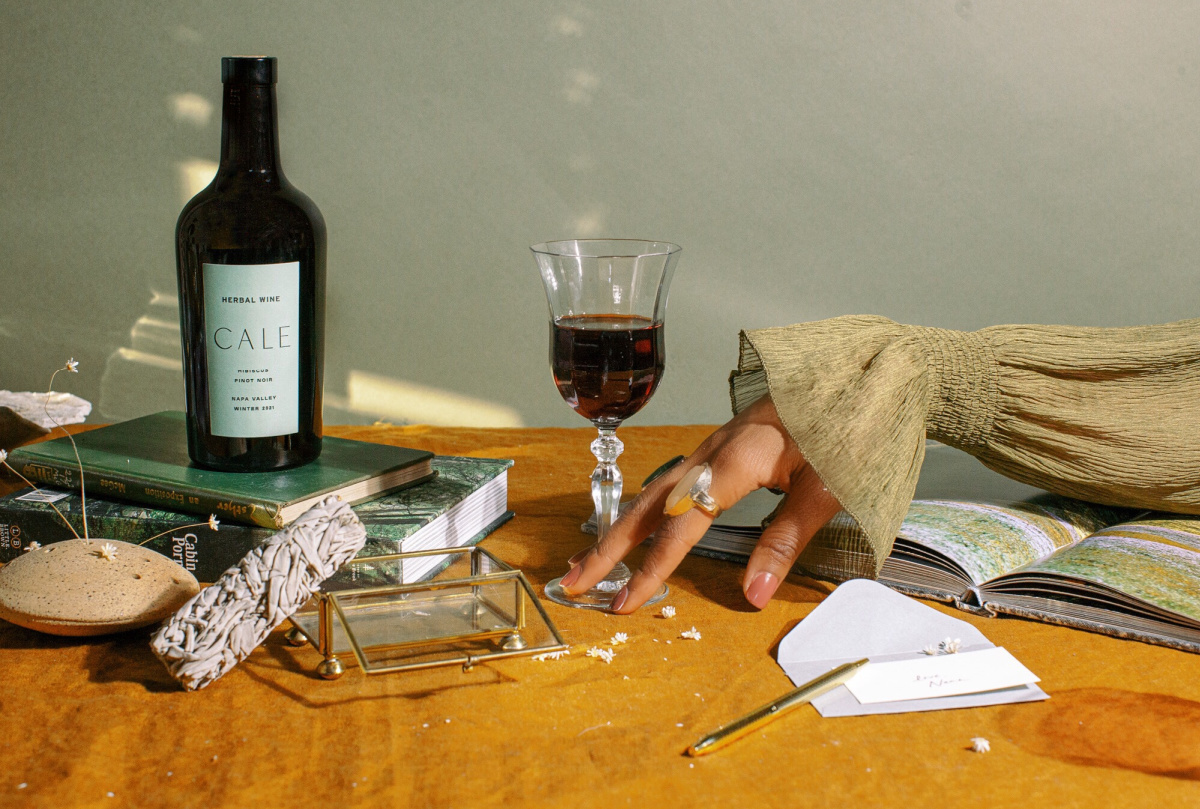
HA: Why did you choose to pursue your herbal education with the Herbal Academy?
Nana Meriwether: When I decided to study herbalism, I was initially mostly in the field, hopping to the Catskills and Central Park to tail elder herbalists and to listen to their stories. It wasn’t until I stumbled upon Herbal Academy that I found a succinct and centralized destination to fortify what I had seen out and about. I believe it is important that herbal education combines a dedication to being outside with elders and those that have come before with structured classes where you can study more in-depth. For example, learn about the science behind why and how certain herbs affect bodily health. Herbalism is both medicine and magic to me, science and spiritual, and so I embrace both folk method teachings and classes like what Herbal Academy offers.
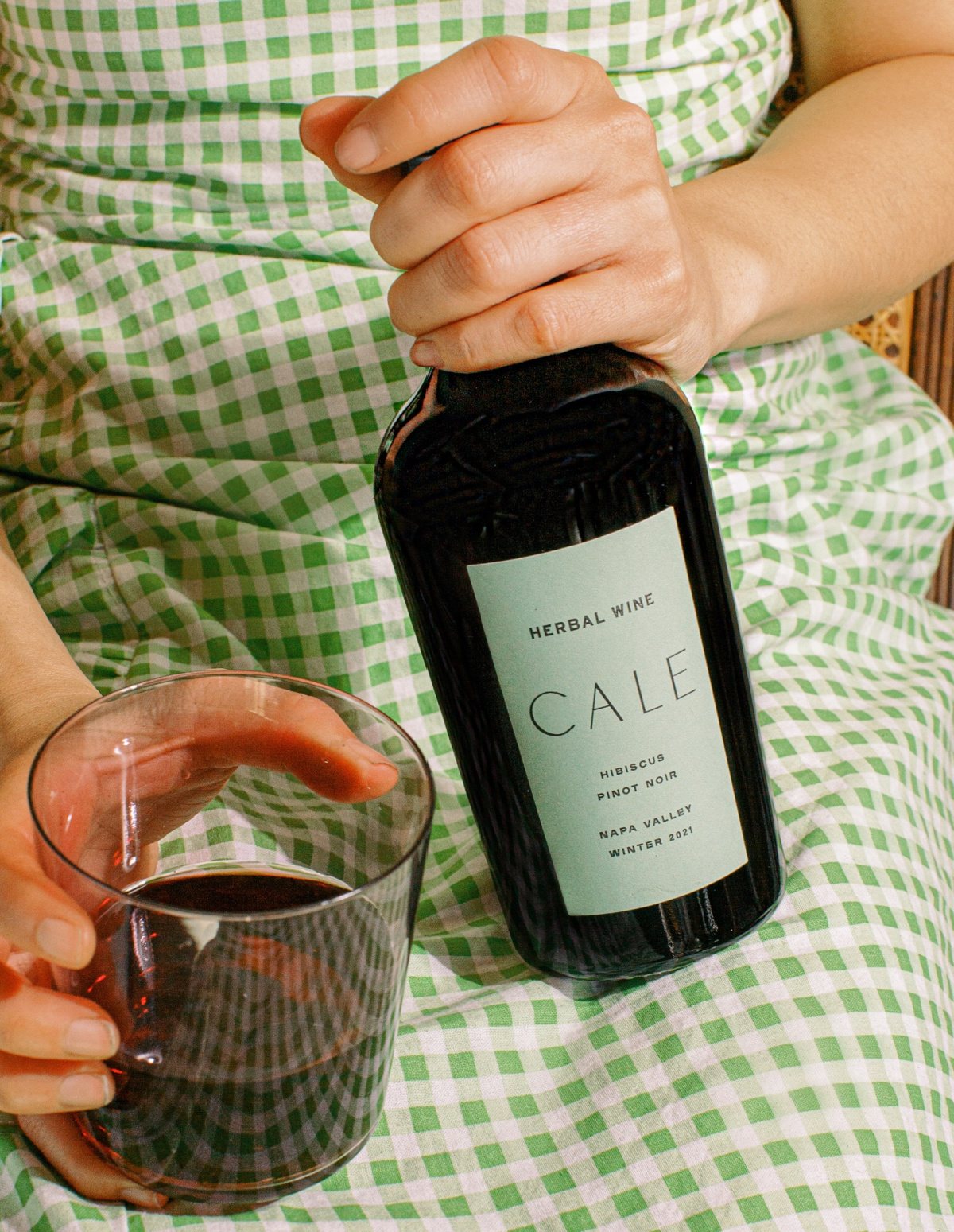
HA: Do you own an herbal business or brand?
Nana Meriwether: YES! YES! Because of the rise and interest in health and wellness, more and more people are drinking less alcohol. Cale is a collection of wines made from herbs and low in alcohol, sugar, calories, and sulfites. We uniquely infuse wine grape varietals with healthful, functional, and adaptogenic herbs, plants, and botanicals to create herbal wine. Herbal wine is an age-old tradition that even the ancient Egyptians, Greeks, Chinese, and Romans practiced in order to fortify health. Our first release is Hibiscus Wine (Pinot Noir infused with organic hibiscus flowers). The opportunity here is that while there has been a wave of low-alcoholic spirit and beer brands in the market, there have been very few wine-based options. If you feel like drinking less, you’re limited to hard kombucha, beer, or hard seltzer. We are introducing herbal wine, a new archetype in the selection of around 4.5% – 5%abv adult drink options. The alcohol industry is not diverse at all. Less than 1% of California winemakers are African American women, and 90% of all wine is made there—we are paving a path.
HA: How did your Herbal Academy courses help shape or improve your business?
Nana Meriwether: Herbal Academy is what introduced me to herbal wine in the first place! I lived in a very small New York apartment with no space to play around with herbs; I remember finding the fermentation course, and after the first class calling my mother to tell her to clear a counter for me in her kitchen in Maryland, that I was coming to her home to begin experimenting and playing with herbal wine. I spent an entire summer in my mother’s kitchen fermenting different herbs and botanicals via techniques I learned in class. Cale would not exist without this class. My life would be totally and absolutely different. I am so grateful to Herbal Academy for literally changing my life—I found my current calling.
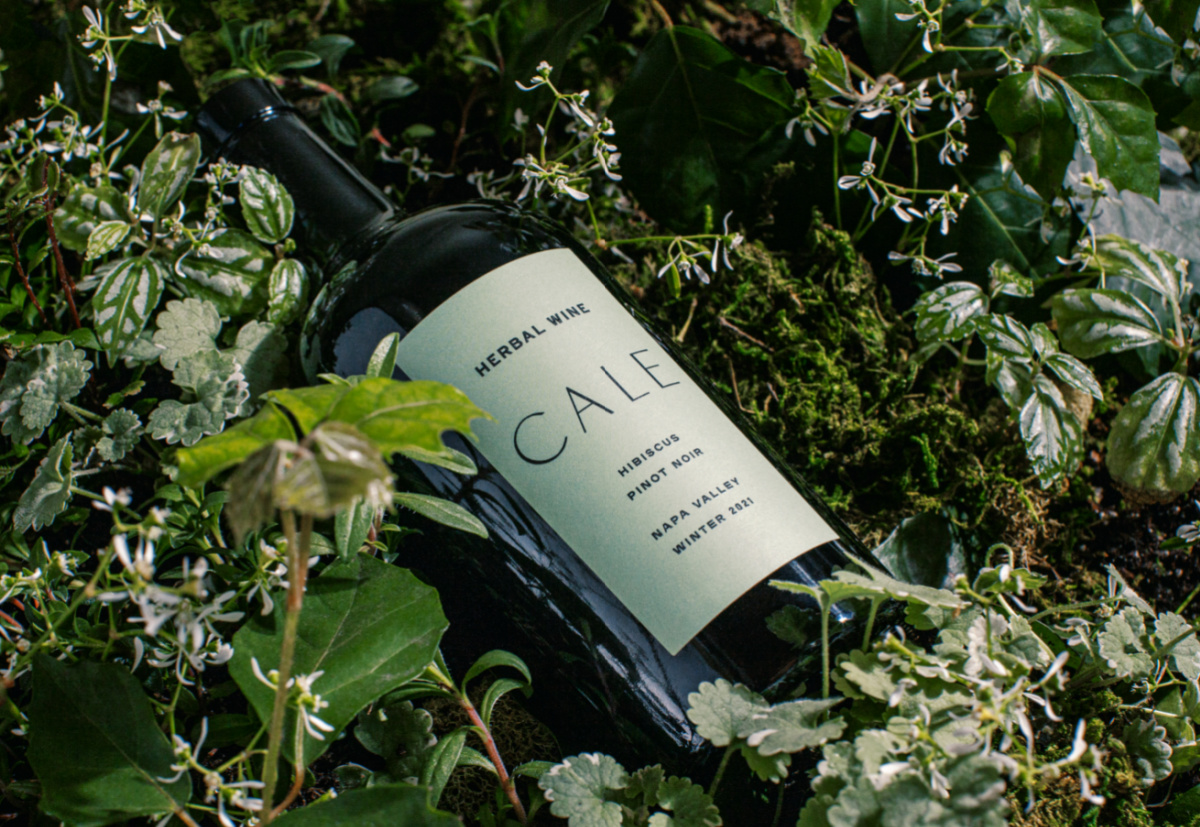
HA: Did your Herbal Academy courses help you avoid any potential mistakes while launching your business?
Nana Meriwether: My Herbal Academy course helped me understand this age-old tradition that has been in practice since ancient times: fermenting herbs and other botanicals. The greatest lesson I learned from my fermentation classes is that herbs and botanicals express differently than modern-day wines and beers. My journey in building this business very much involves introducing consumers to new and unexpected tastes. For example, my first release is Hibiscus Wine. Hibiscus is a traditionally tart herb, thus so is its wine. The American palate is very familiar with sugar and sweetness, but not so much with the pull that the mouth can experience when drinking hibiscus. In my marketing, storytelling, and tastings, I enjoy preparing and educating my drinker to expect something delightful, floral, light, but different.
HA: Tell us, what’s next for you in your herbal journey?
Nana Meriwether: I hope to take more classes with Herbal Academy as I build my company. The job of an herbalist, or someone interested in this field, is lifelong learning. From the herbal courses to the business courses and even the beauty courses, I look forward to continuing to build upon my knowledge so that I may present to the world and represent our work most fully and respectfully.
HA: What did you like most about your Herbal Academy course?
Nana Meriwether: Herbalism is an intuitive practice, but very much also a science. I like that Herbal Academy distills scientific information so that we the students can best absorb seemingly complex topics most easily. The branding and presentation of courses are so beautiful too. It helps me stay engaged like no other online course I have taken before.
HA: If you were to recommend an Herbal Academy course to your best friend, what would you say?
Nana Meriwether: I would recommend the Botanical Skincare Course!! In 2018 I stepped into wellness and the study of what goes in—and onto—our bodies, that commercial products are laden with toxins that burden our systems. It is so easy and fun to make at-home beauty products from herbs that are not toxic, but medicinal.
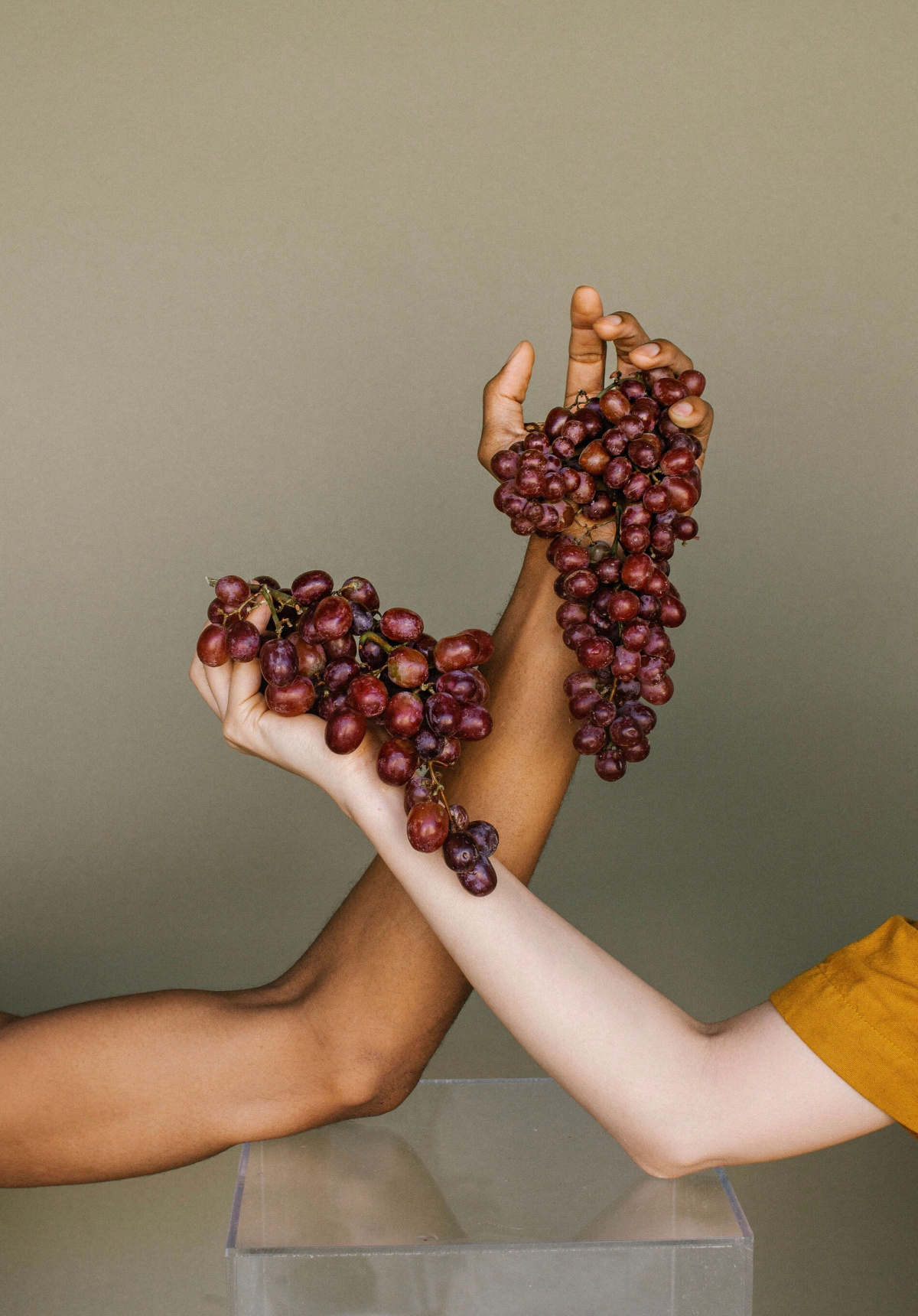
HA: How has your herbal education deepened your connection with nature and the seasons?
Nana Meriwether: My first herbal learning happened outdoors. I first learned that herbalism existed while living on a permaculture farm in Costa Rica. In a corner of the farm was always a group of women working on their tinctures and herbal concoctions. I would conveniently walk by every day to ask questions and realized that something inside of me was them. I came home and continued pursuing folk methods, but luckily found Herbal Academy as well. Herbal Academy has proven to be a great destination for me to fortify my folk and intuitive knowledge with science and history.
HA: Have you learned more about your ancestral roots and traditions through your herbalism studies?
Nana Meriwether: Since studying herbalism and becoming an herbal winemaker, yes I believe I have tapped into something deep within myself that perhaps my great great great grandmothers did. The alcohol industry is not diverse at all, less than 1% of California winemakers are African American women although 90% of all wine is made there. I am paving a path, but it is a road I know other women have traveled because in ancient times it was the woman at the head of the household who was in charge of fermenting the family beer and wine. When I am creating and working with my wines, I honestly and intuitively feel that I am tapping into something my being has known before.
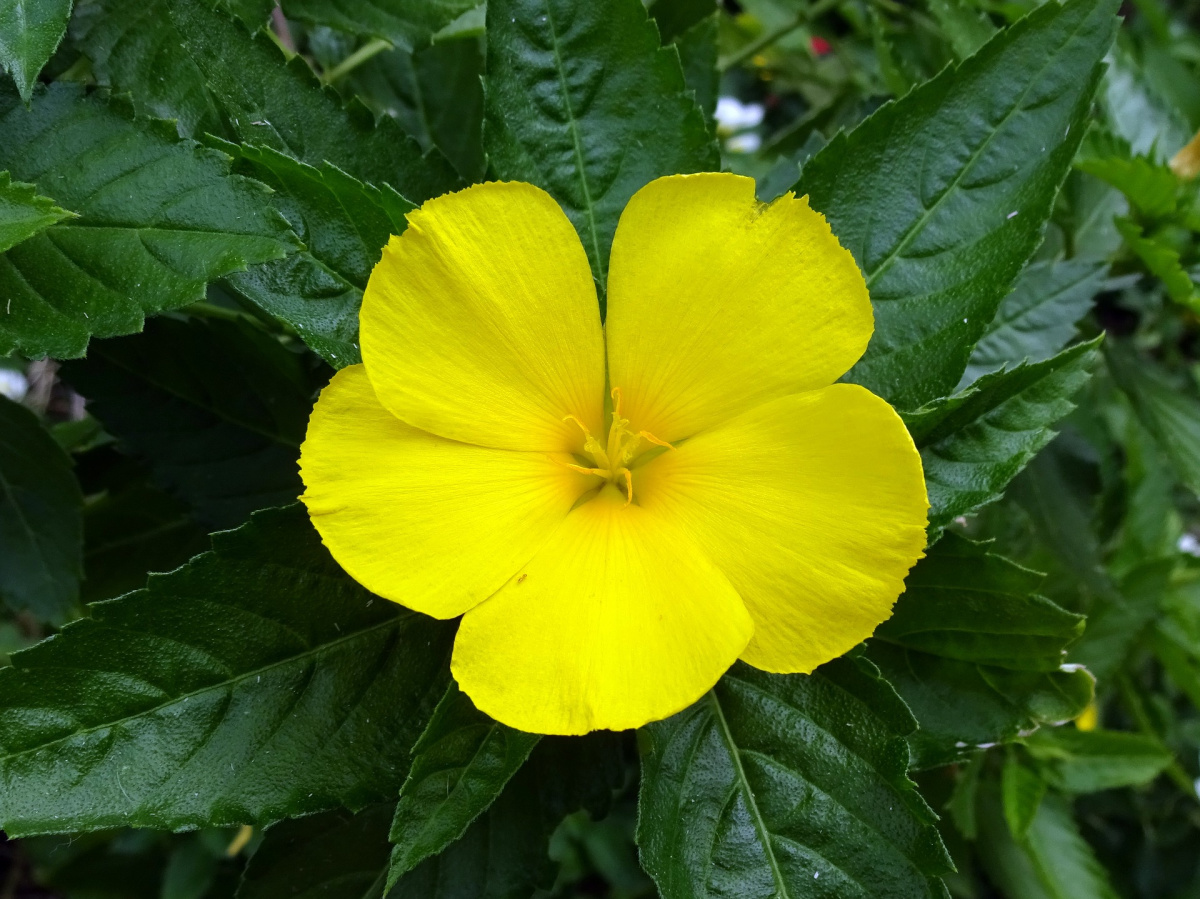
HA: If you were an herb, which herb would you be?
Nana Meriwether: If I were an herb I would be damiana. A nervine and known aphrodisiac, damiana has a nickname and is known to be “the wild one who tames”. She calms the nervous system, yet she is wild and full of life force to awaken our second chakra. I love this herb because it is so connected to the divine feminine work I am so intrigued by.
HA: Do you have any rituals or traditions surrounding herbalism that you would like to share?
Nana Meriwether: Every new and full moon and depending on what my soul needs, I take time to write intentions, but in doing so I prepare a space prior that is decorated with candles, incense, and my favorite herbs. For example, if I am looking to bring in a lover I will place rose and other herbs of the like to manifest my dreams more fully and fast.
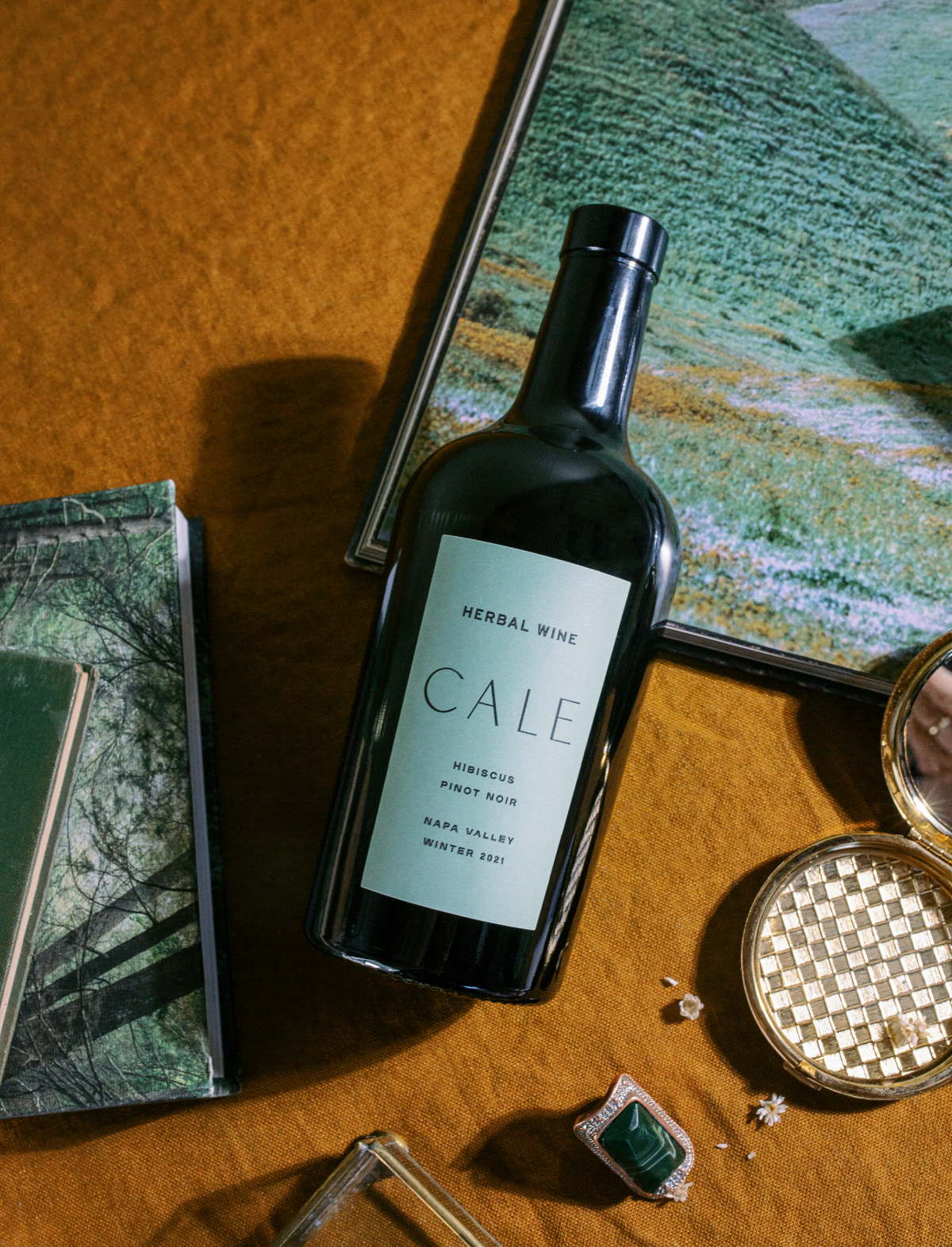
HA: What is the biggest way that herbalism has brightened your life?
Nana Meriwether: It has given me my job! I am an herbal winemaker—a technique and tradition descendant from herbalism. I like to think of it as a cousin to mead and kombucha, but my day-to-day is building a business around the fermentation of making herbs and botanicals into wine.
HA: Do you enjoy sharing your herbal knowledge with others in your life via recipes, products, photography, blog posts, community workshops, etc?
Nana Meriwether: I share my herbal knowledge via bringing to market my line of herbal wines, including my first release, Hibiscus Wine. I am averse to strict consumerism though. My storytelling and social media accounts incorporate learnings and education around the history of this amazing field, the people that have come before, and how herbs and botanicals heal—I fully respect herbalist teachings and via my brand hope to wake more people up to the field.
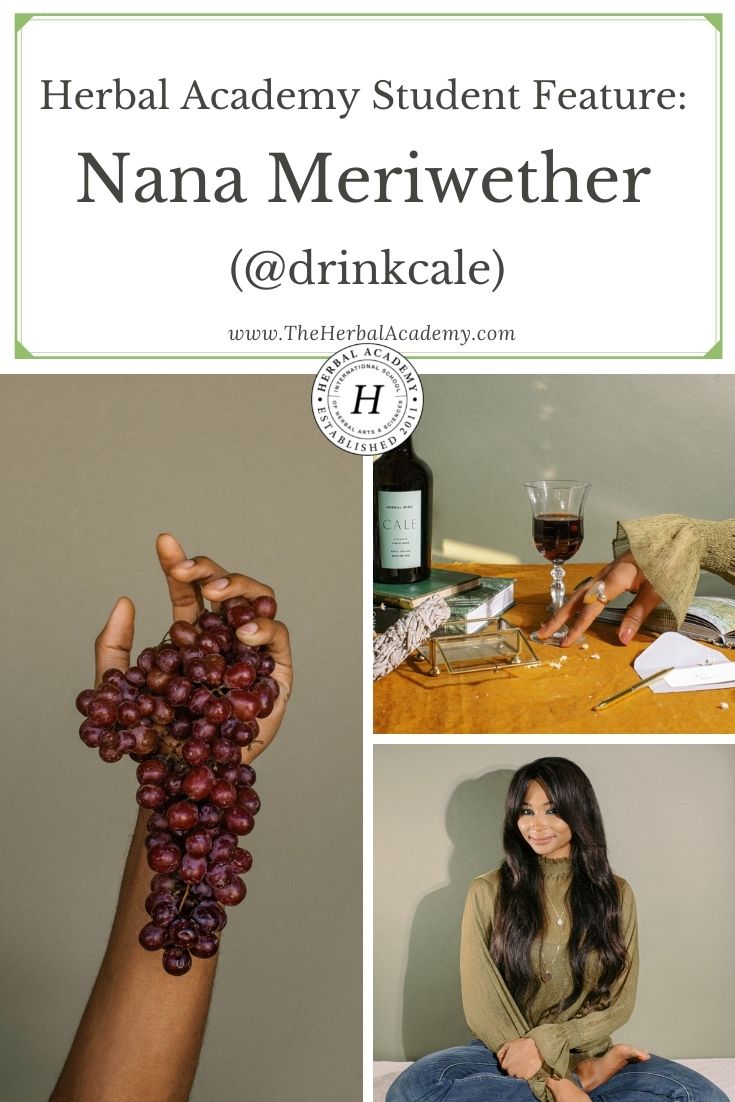
Stay tuned for the next installment of our Student Feature Series with Jess Madsen @the.wildcraft.
Read past student interviews with:
Erin Ethier (@EarthlyRemediesByErin)
Kendra Payne (@the.herbal.scoop)
Caitlin Frazier (@TheLocustsandHoney)
Chelsea Stephens (@wildflowerandtherose)
Katie Woods (@ritual_skincare)
Alyson Morgan (@AlysonSimplyGrows)
Cat Seixas (@TheOliveTreesAndTheMoon)
Inspired by Nana’s herbal journey? Further your own journey today by perusing our online herbal courses.
Photo credit: All images in this post are by Nana Meriwether.







